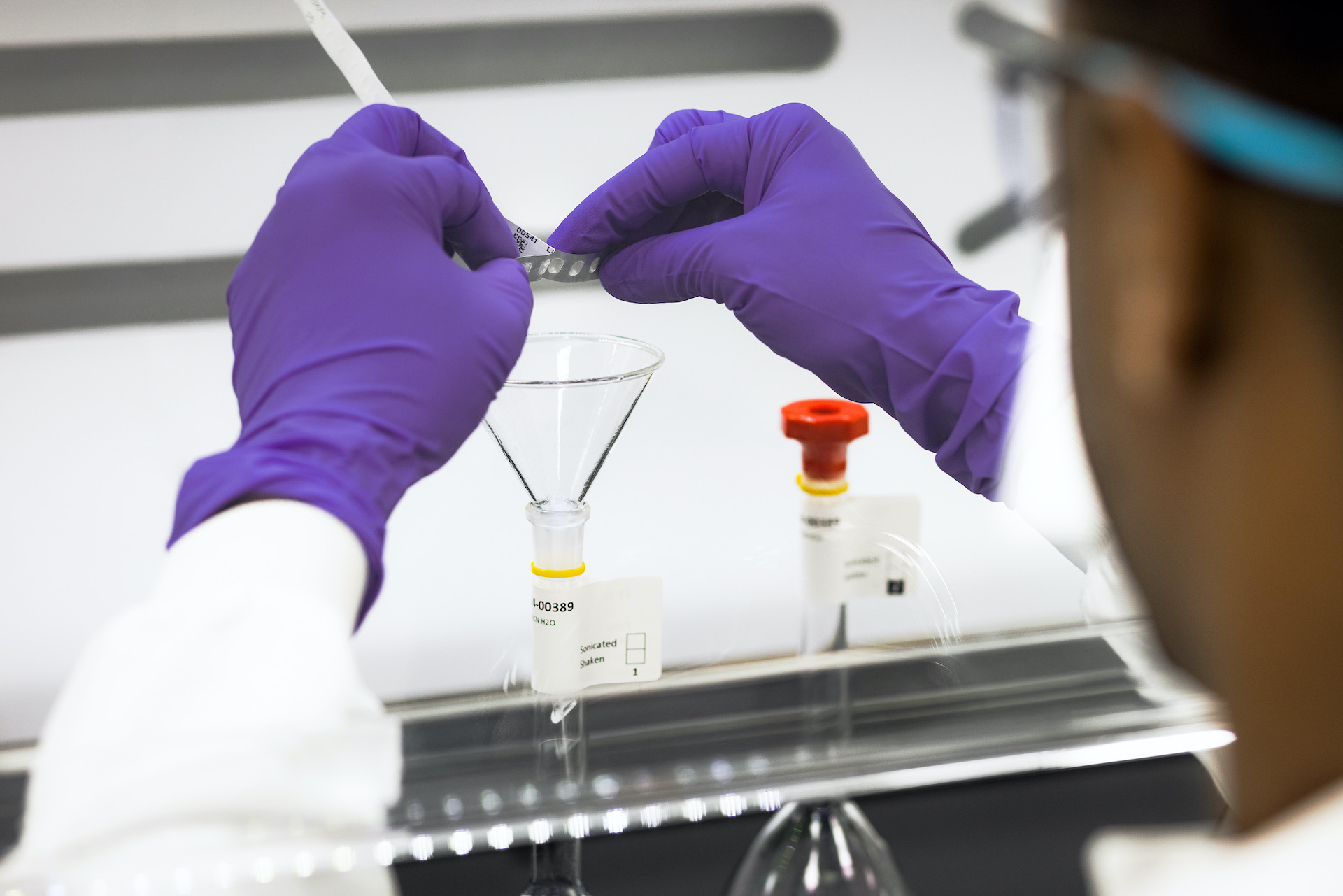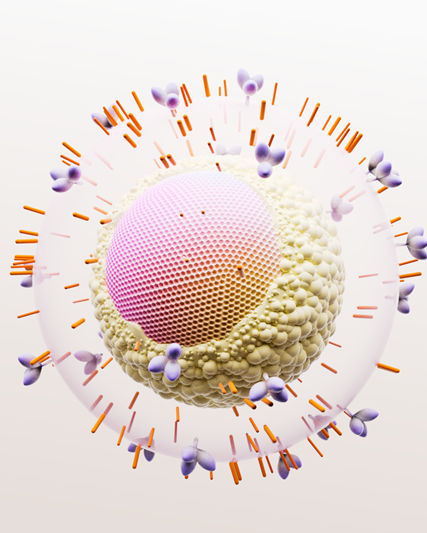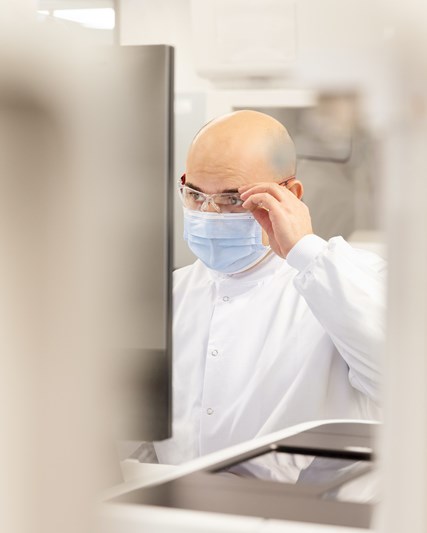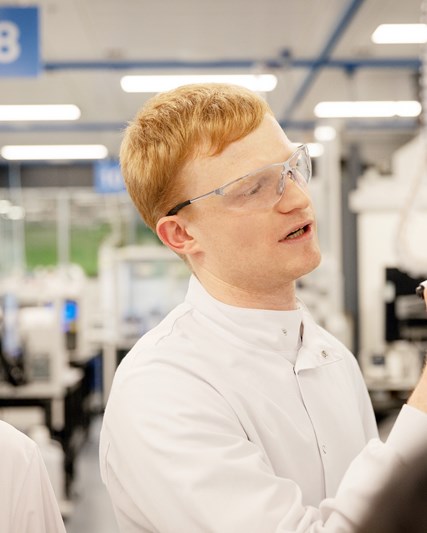Since their discovery in the early 20th century, antibiotics have revolutionised human healthcare, saving and extending countless lives around the world. Before Alexander Fleming’s landmark discovery of penicillin in 1928, the average life expectancy was just 47 years. The smallest cut had the potential to be fatal if it became infected [1].
But the growing burden of antimicrobial resistance (AMR) now poses a major global threat to individuals, public health, society, and economies worldwide.
As antibiotics becomes less effective, vaccines are an increasingly important tool to help reduce the spread of antibiotic resistance – but they are broadly under-used for this purpose. GSK is pioneering new vaccines to help us get ahead of AMR.
What is antimicrobial resistance?
AMR develops when microorganisms (bacteria, viruses, fungi, or parasites) no longer respond to drugs designed to prevent them replicating. This resistance builds over time through mutation and overexposure to antimicrobial drugs, especially when courses of treatment aren’t completed in the optimal way. Without effective treatments, these infections can remain, grow, and continue to spread to other areas of the body.
Why is AMR a growing threat?
As the use (and misuse) of antibiotics rises globally, so too does the rate of resistance. This includes resistance to ‘superbugs’ – bacteria that have accumulated resistance to almost all available antibiotics. It is estimated that 1.27 million people lost their lives to bacterial AMR in 2019 [2]. In a worst-case scenario, AMR could claim up to 10 million lives each year by 2050, more than currently die from cancer and diabetes combined [3].
This compromises our ability to treat common infectious diseases and could reverse the significant advances made in healthcare over the past century. Cancer therapies could become ineffective, routine surgeries impossible, or even childbirth less safe [4].
How can we reduce the spread of AMR?
Developing new antibiotics is very difficult, both scientifically and financially. But at GSK, we are continuing research in this field. We also believe that vaccinations could play a vital role in addressing the global threat of AMR. Our contribution to preventative measures including vaccination helps to protect to protect tens of millions of people globally against a range of bacterial and non-bacterial infections.
Vaccinations can help to reduce an individual’s risk of infection, while training the immune system to recognise and develop a rapid and effective immune defence to a pathogen. Even for people who cannot be vaccinated, such as those with a compromised immune system, vaccines can help through a process called ‘herd immunity’, which greatly reduces disease in the overall population. By reducing the spread of disease, vaccination subsequently lowers the need and use for antibiotic treatment, further limiting the opportunities for resistance.
New insights and novel technologies
Focusing on new scientific insights helps us target pathogens most likely to develop resistance, so we can develop effective vaccines more rapidly compared with traditional approaches. These include novel vaccine technologies such as bioconjugation to bond molecules, adjuvants to help boost the immune response and generalised module for membrane antigens (GMMA).
We currently have several research projects targeting priority AMR pathogens for the WHO, the European Centre for Disease Prevention and Control (ECDC) and the US Centers of Disease Control and Prevention (CDC).
Leveraging the potential of vaccines
Although vaccines could help protect more people from infectious disease and reduce resistance, they remain a broadly underused tool in getting ahead of AMR. This is due to factors such as lack of access, insufficient data on the impact of vaccines against AMR, and vaccine hesitancy [5].
There are at least three areas where industry, governments and other stakeholders can help to further the impact of existing and future vaccines as a tool against AMR:
- Increasing access and uptake of current AMR-relevant vaccines to prevent disease and reduce demand for antibiotics
- Incentivising development of further AMR-relevant vaccines
- Using data for impact by expanding the evidence available on the value of vaccines on AMR
As the global community emerges from the COVID-19 pandemic, we have a window of opportunity to get ahead of AMR. Taking these steps to leverage the potential of vaccines, as well as appropriately use and develop other tools to prevent and treat infection, will help us to beat the bugs together.
References:
[1] Adedeji, W.A. The treasure called antibiotics. Ann Ib Postgrad Med. 2016 Dec; 14(2): 56–57.
Available at: https://www.ncbi.nlm.nih.gov/pmc/articles/PMC5354621/#!po=8.33333 Last accessed 12 June 2020
[2] Antimicrobial Resistance Collaborators, Global burden of bacterial antimicrobial resistance in 2019: a systematic analysis, The Lancet, Volume 399, Issue 10325, 2022, Pages 629-655, ISSN 0140-6736
https://doi.org/10.1016/S0140-6736(21)02724-0.
Available at:https://www.sciencedirect.com/science/article/pii/S0140673621027240 Last accessed 20 April 2022
[3] 2020HM Government, ‘Antimicrobial Resistance: Tackling a crisis for the health and wealth of nations’, p.5. Last accessed https://amr-review.org/sites/default/files/AMR%20Review%20Paper%20-%20Tackling%20a%20crisis%20for%20the%20health%20and%20wealth%20of%20nations_1.pdf (PDF - 1.99MB) Last accessed 12 June 2020
[4] World Health Organization, ‘About AMR’.
Available at: https://www.euro.who.int/en/health-topics/disease-prevention/antimicrobial-resistance/about-amr (PDF - 2MB) Last accessed 17 June 2020HM
[5] Jansen, K. U., Gruber, W. C., Simon, R., Wassil, J., & Anderson, A. S. (2021). The impact of human vaccines on bacterial antimicrobial resistance. A review. Environmental chemistry letters, 1–32. Advance online publication.https://doi.org/10.1007/s10311-021-01274-z
Available at: The impact of human vaccines on bacterial antimicrobial resistance. A review - PMC (nih.gov) Last accessed 20 April 2022




